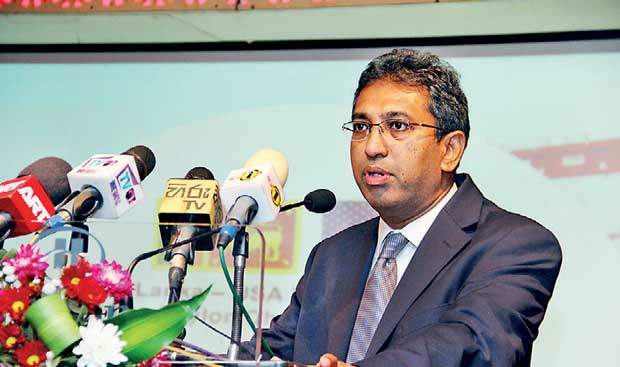Reply To:
Name - Reply Comment
Last Updated : 2024-04-27 00:40:00

By Chandeepa Wettasinghe
Sri Lanka’s apparel industry is now seeking concessions from the government to import labour from regional economies to address the local labour shortage, National Policies and Economic Affairs Deputy Minister Dr. Harsha de Silva said yesterday.
“We have tens of thousands of jobs that cannot be filled in the apparel sector, in the (industrial) zones, because no one wants to take those jobs. So people are coming to us and telling us ‘Harsha, could you give us some concessions so we can get some people from Nepal or Bangladesh or Myanmmar’ or various other places,” he said. He was speaking at a seminar on US Generalized System of Preferences programme by the Sri Lanka- USA Business Council of the Ceylon Chamber of Commerce.
Many other industries, such as shipbuilding, construction and plantations have also shown interest in importing labour due to
manpower shortages.
However, protectionist elements in the social and political spheres are resisting attempts to import labour to Sri Lanka. The construction industry seems to have already succeeded in its efforts, since thousands of Chinese Indian and Bangladesh labourers work at construction sites in Colombo, both legally with proper visa and illegally with tourist visas.
Meanwhile, Dr. de Silva also expressed doubts about the sustainability of the apparel industry, even if it is allowed to import labour.
“But, then, how sustainable is that? Is that what we really want? All what we want is to create jobs that pay good salaries and get people employed with higher paid salaries.
That’s the difficult question we as policy makers have,” he said.
Dr. de Silva said that although the apparel industry has served Sri Lanka reasonably well for the past several decades, it will have very limited potential going forward, unless the industry upgrades itself to the next level.
“Unless we move to the next level of apparel, (such as) high-tech apparel, wearable technology (and) designer apparel, the scope is limited,” he said.
Only a handful of companies have currently invested in such technologies.
The apparel sector enjoys high margins, with owners and professionals in corporate offices earning super incomes.
However, as Dr. de Silva mentioned, labourers are not keen to take up lower level jobs in the apparel industry or industrial zones.
In spite of this, the 40th anniversary celebrations of the Board of Investment held at the Katunayake Export Processing Zone saw predominantly apparel industrialists being felicitated with awards.
Although poverty has fallen, inequality is rising as a serious problem in Sri Lanka as highlighted by both the World Bank and the Asian Development Bank this year.

Add comment
Comments will be edited (grammar, spelling and slang) and authorized at the discretion of Daily Mirror online. The website also has the right not to publish selected comments.
Reply To:
Name - Reply Comment
US authorities are currently reviewing the manifest of every cargo aboard MV
On March 26, a couple arriving from Thailand was arrested with 88 live animal
According to villagers from Naula-Moragolla out of 105 families 80 can afford
Is the situation in Sri Lanka so grim that locals harbour hope that they coul

9 hours ago
26 Apr 2024